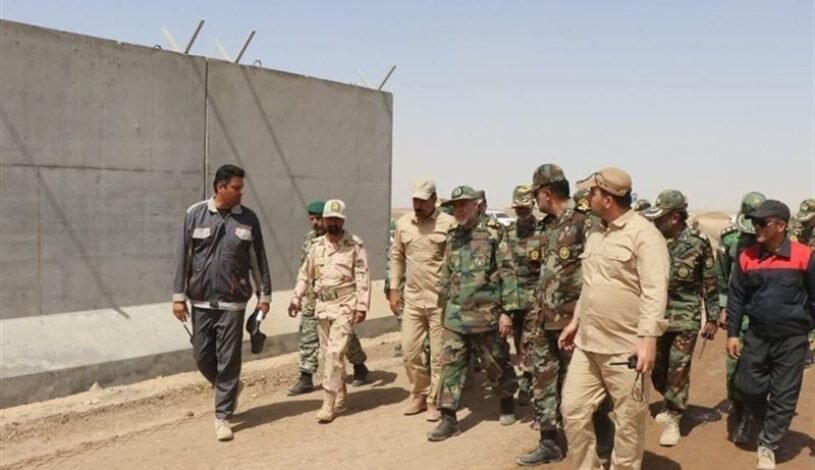Iran border closure efforts are progressing, with Sirus Amanollahi, a commander for the Iranian Army’s ground forces, confirming that 330 kilometers of the border project on the eastern front with Afghanistan will be finished by the end of this year. He shared this update during his visit to Iran’s eastern border.
Sirus Amanollahi emphasized that the Iran border closure is essential for maintaining security within the country. The project is designed to protect Iran from external threats and ensure the safety of its citizens.
The commander also noted the growing interactions between Iran and Afghanistan. He said that this collaboration has led to a daily increase in security along their shared borders. The presence of armed and security forces has significantly strengthened this security.
On the other hand, Hamdullah Fetrat, the deputy spokesperson of the Islamic Emirate, acknowledged that the Iran border closure project is within Iran’s rights. He mentioned that the project is being carried out with the agreement and coordination of the Islamic Emirate. Fetrat affirmed that Iran’s actions to secure its borders are fully justified.
Fetrat further stated, “Iran’s right to implement the border closure within its territory is recognized, and they are taking necessary security measures. The project is being executed in full agreement with the Islamic Emirate.”
However, Yousuf Amin Zazai, a military affairs expert, expressed a different view. He pointed out that any border activities between Afghanistan and Iran must be mutually agreed upon by both governments. If there is no agreement, such actions could be seen as unilateral and unacceptable to the people of Afghanistan.
Hanif Khan Karokhel, a political affairs expert, highlighted the potential benefits of the Iran border closure. He suggested that it could play a crucial role in curbing drug and human trafficking. Additionally, it could help reduce other challenges that arise at the border.
The Iranian official mentioned that the border closures in Khorasan Razavi, South Khorasan, and Sistan and Baluchestan are expected to be completed within the next three years. Iran has allocated three billion dollars to its armed forces to ensure the successful implementation of this border closure project.


